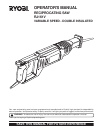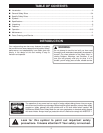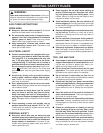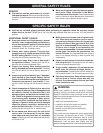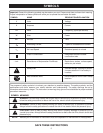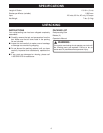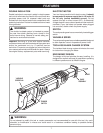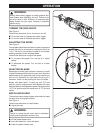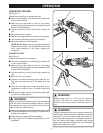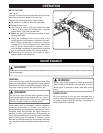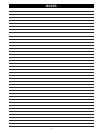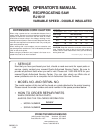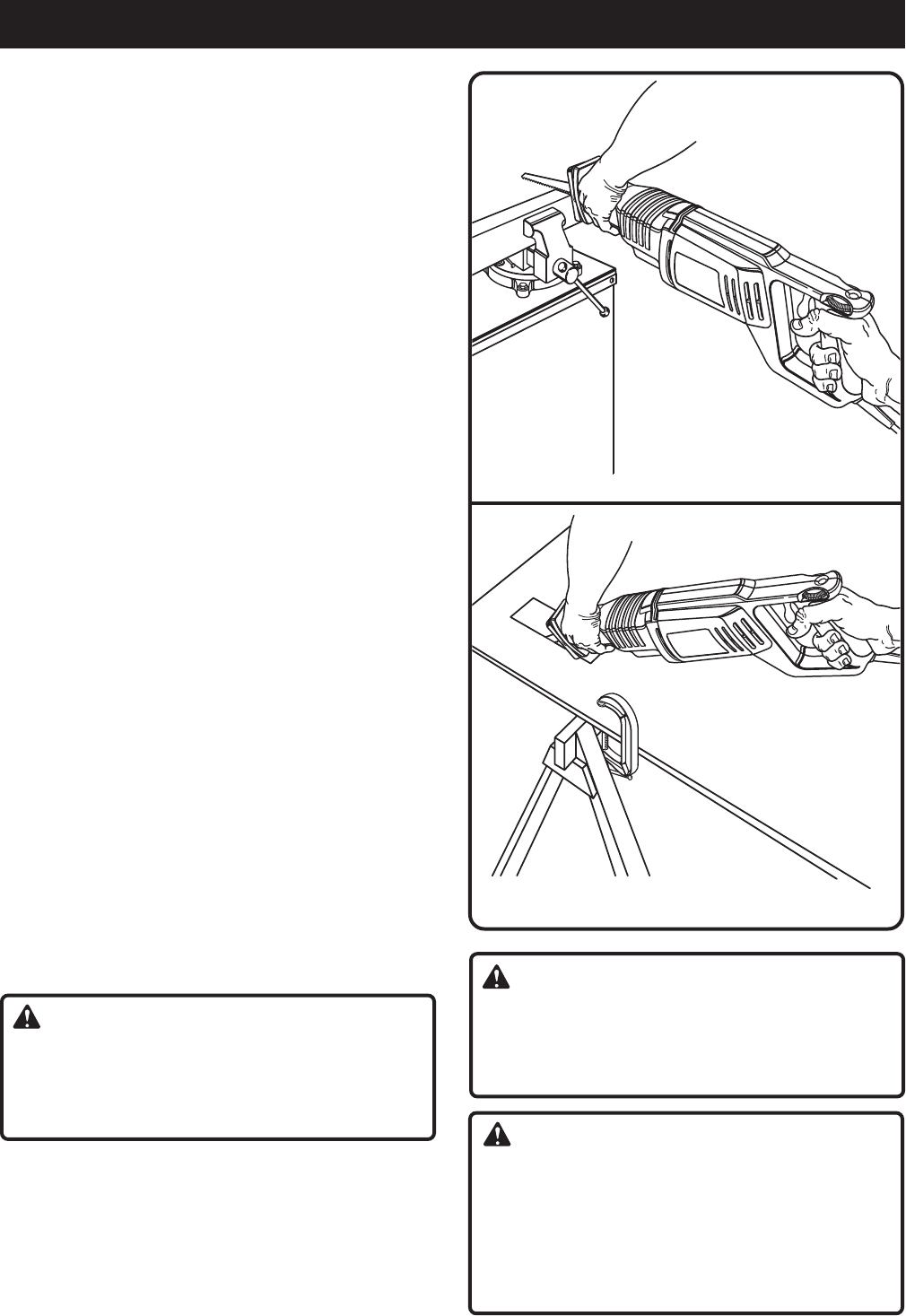
9
OPERATION
OPERATING THE SAW
See Figure 5.
Follow these directions to operate the saw.
■ Secure the workpiece to a work bench or table with
a vise or with clamps.
■ Make sure the saw blade is clear of any foreign
material and that the power cord and extension cord
are out of the blade path.
■ Hold the saw firmly in front of and clearly away from
you.
■ Mark the line of cut clearly.
■ Depress the trigger switch to start the cutting action.
■ Set the base assembly against the workpiece.
■ Move the blade into the workpiece.
NOTE: Do not force. Use only enough pressure to
keep the saw cutting. Let the blade and saw do the
work. Keep pressure on the base, against the
workpiece.
PLUNGE CUTTING
See Figure 6.
Follow these directions to plunge cut.
■ Secure the workpiece to a work bench or table with
a vise or with clamps.
■ Make sure the saw blade is clear of any foreign
material and that the power cord and extension cord
are out of the blade path.
■ Hold the saw firmly in front of and clearly away from
you.
■ Mark the line of cut clearly.
■ Choose a convenient starting point inside the cut-
ting area and place the tip of the blade over that
point.
■ Rest the front edge of the base assembly on the
workpiece and hold it firmly in position during the
cut.
■ Depress the trigger switch and allow the saw blade
to reach full cutting speed.
WARNING:
Make sure the blade does not touch the workpiece
until the motor reaches full speed. Failure to heed
this warning can cause you to lose of control of the
saw and result in serious injury.
■ Tilt the saw downward until the tip of the blade starts
cutting the workpiece.
■ Allow the saw to penetrate the workpiece.
■ Tilt the saw until the blade is perpendicular to the
workpiece.
Fig. 5
Fig. 6
6
6
WARNING:
Blades longer than 6 in. (15.2 cm) can whip and
should not be used for plunge cutting. Failure to
heed this warning can resut in serious personal in-
jury.
WARNING:
Cutting into electrical wiring can cause the blade, the
blade clamp, and the saw bar assembly to become
electrically live. Do not touch metal parts when cut-
ting into a wall; grasp only the insulated surfaces on
the tool. Make sure hidden electrical wiring, water
pipes, and mechanical hazards are not in the blade
path when cutting into a wall.



